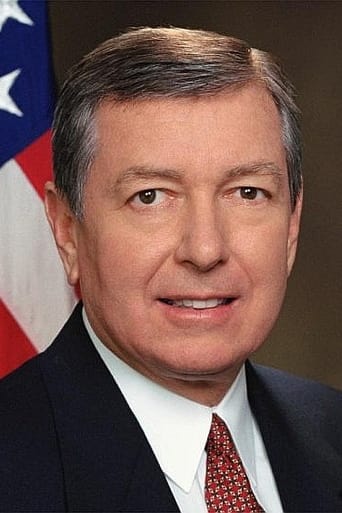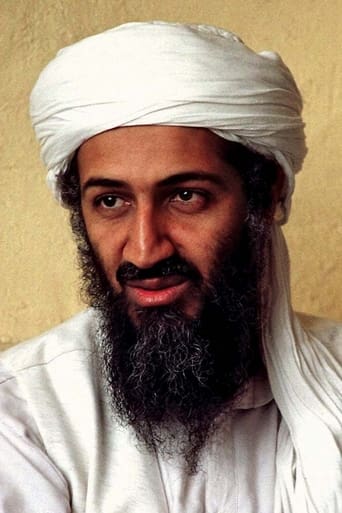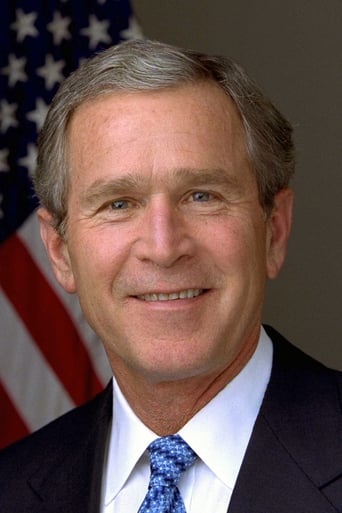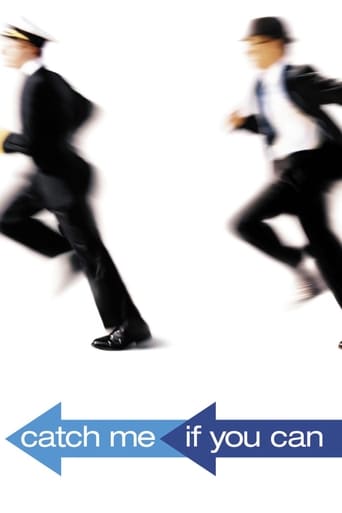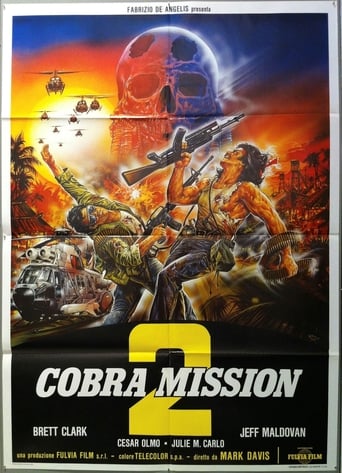Why We Fight (2005)
Is American foreign policy dominated by the idea of military supremacy? Has the military become too important in American life? Jarecki's shrewd and intelligent polemic would seem to give an affirmative answer to each of these questions.
Watch Trailer
Cast
Similar titles
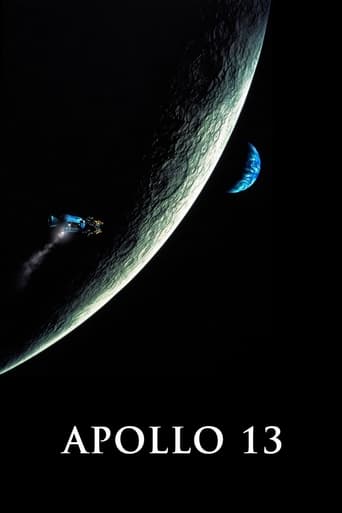

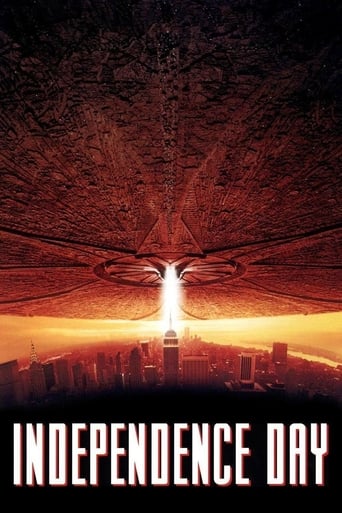
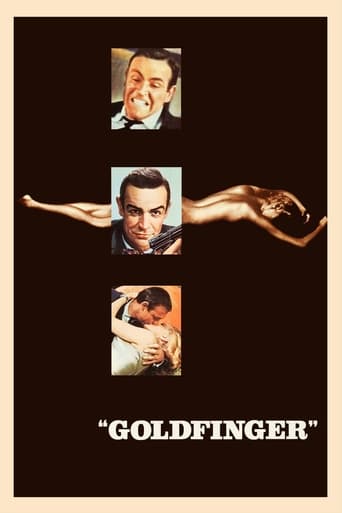
Reviews
Lack of good storyline.
Bad Acting and worse Bad Screenplay
All of these films share one commonality, that being a kind of emotional center that humanizes a cast of monsters.
It's simply great fun, a winsome film and an occasionally over-the-top luxury fantasy that never flags.
A carefully prepared piece of propaganda, but what politically inspired piece of work isn't? Simply because it is propaganda doesn't mean it can be dismissed outright.THERE IS TRUTH IN THIS MOVIE! Whether it fits the people on the left or the right, the dangers American President Eisenhauer spoke of have come to pass. There is no money to be made in supplying an army that never uses its equipment. The fact that politicians lie, cheat and grow rich is nothing new. The tragedy is that someone else has to point it out to you.I still recall the slogan "My Country, Right Or Wrong" coming out of the USA. Unfortunately, far too many people have failed to grow past that kind of mental subjugation.As a companion to this film, I strongly recommend "Fog Of War", based on the experiences of former US Defence Secretary Robert McNamara (Kennedy/Johnson/Vietnam).Why do we fight? Same reason as always...Profit
There's a sense of dreadful irony suffusing this documentary about Bush's war in Iraq. There's the case of the guy (Wilton Sekzer) whose son was killed in the 9/11 attacks. Fired with a desire for revenge, he writes the Pentagon to get his son's name put on a bomb that he hopes is dropped on those who killed his son. He's a retired cop and a Vietnam vet. He gets to see a photo of the bomb with his son's name on it. The terrible irony is the bomb is not dropped on somebody who might have killed his son. Instead it likely falls on civilians in Iraq.This up close and personal irony mirrors the larger one: Bush had little interest in getting bin Laden and those responsible for the 9/11 murders. Instead he used those attacks as a rationale to pursue a personal agenda of shock and awe so that he might be in a position to avoid the fate of his father, who was a one-term president.An even greater irony is in the title. "Why We Fight" is the name of a series of World War II films made by Frank Capra aimed at American soldiers going overseas to fight the Nazis or the Japanese imperialists. The irony is that in WWII it was clear why we had to fight. In Bush's war there was and is no clear necessity, moral or strategic, no sense of doing the right thing, of going against an enemy that would conquer us. Instead, there is just the terrible sense of waste, waste of over one hundred thousand human lives (and counting), waste of hundreds of billions of American dollars (that could have been put to better use at home)--all seemingly for the aggrandizement of one man and the twisted dreams of a handful of neocon chicken hawks drunk with power.Another irony is that of the intelligence/information officer, Air Force Lt. Col. (ret.) Karen Kwiatkowski, who learned that much of the information that she was required to disseminate and swallow was misinformation and outright lies. And then there is the irony of the young pilots who were interviewed, who dropped the bombs. One is lead to say what an honor it was to drop one of the first bombs in Operation Iraqi Freedom, an operation he saw as liberating a people, an operation that had previously been called (with telling dramatic irony) Operation Iraqi Liberation (OIL).As the documentary reminds us, World War II was fought for oil as well, but it was the Japanese who started it to secure the oil fields in the South Pacific so that they could fuel further expansion in Asia, and by the Nazis who also had little to no domestic crude to fuel their maniac dreams of world domination.What sets this documentary apart from some others (especially the somewhat shallow exercise by Michael Moore) is how the war is put in historical perspective. Director Eugene Jarecki shows how the illogic of the present meshes with that of the past as we see Rumsfeld making nice with Saddam Hussein in the days when we supported him as our dictator in the Middle East. And further removed we see the grainy ghosts of Vietnam past: John F. Kennedy, LBJ, Nixon... And then there are the many mendacious statements of Bush, Cheney, Rumsfeld, Richard Perle, Paul Wolfowitz, et al., juxtaposed against the damning analysis of military and political experts.In the final analysis Jarecki makes it clear that we fight to feed the vast military-industrial complex that Eisenhower warned us about. As someone (Chalmers Johnson, I believe) remarks, with so much profit to be made in war, you can be sure that war will follow. How else to use up the munitions so that others might be manufactured and sold?(Note: Over 500 of my movie reviews are now available in my book "Cut to the Chaise Lounge or I Can't Believe I Swallowed the Remote!" Get it at Amazon!)
It angered me, because it exposed a lot about our government that I was unaware of. I always knew that 9-11 and the Iraqi war weren't entirely related, but I think I never actually thought of it as much until this movie. As an American I think I hold that opinion that most citizens of any nation hold and that is to support your country no matter what. After seeing this, I will still support my troops simply because they are not all are enlisted as a financial gain for college, etc. What got me the most was the father that lost his son, talking about the bomb dropped in his son's name that had nothing to do with 9-11. That also enraged me to know that our government pulled another Gulf of Tonkin excuse again, and pretty much tried to trick us....again. It's exhausting thinking about how dishonest our government has been over the past 60 years with all the wars we have been in. Sometimes I wish they would just say that they want more land or oil, or whatever it is they are fighting for. Instead they recruit more troops to fight under false pretenses. It's not fair, because sometimes it seems like we are treated like children or we are under some type of dictator government. If we don't support the government we are considered treasonous, but if we do then other countries see us as stupid American's because we have no idea what the government is really doing. This movie really brought that all to light, and I recommend to it to our nation, our allies, and our enemies.
Part of the problem with this documentary is that it uses selective information to support its pre-existing intent. There were even several times when I thought the film was produced by duplicitous Frenchmen. For example, the film does not adequately explain the role of the United States, and most especially that of the US military, in providing the lion's share of the defense of Old Europe over the past half century under NATO cover. This very long and colossal American commitment, which inexplicably continues today, fifteen years after it should have ended, allowed Old Europeans the freedom to evolve a very different view of military matters than did Americans -- sort of like children don't begin to comprehend all the sacrifices made by their parents on their behalf. I myself spent a total of fifteen years of my life in Old Europe, including West Berlin during its darkest days, as a professional American soldier, and I very rarely enjoyed any of it. On the contrary, while the Old Europeans were soaking up boatloads of American tourist dollars, I, with two university degrees and four language fluencies, was usually considered a paid servant of the privileged Old Europeans. The fifteen years I spent in other regions of the world were immeasurably more rewarding and worthwhile, both to me and to my nation. Almost all of the problems I encountered elsewhere in the world had direct Old European roots.Furthermore, it is today well known among American military circles that one of the largest defense contractors in the world doing major business inside the United States today, with an astounding 23 different major facilities, is a German-French consortium that seeks to make up in the United States what profits cannot be made from stingy Old European governments. The French government, which did not have to place anything on the line in Cold War NATO when it was needed most, is today a major shareholder in that Continental defense consortium, which also sells major advanced military hardware to countries like China -- sort of like the free-riding French and the Germans playing both ends against the middle, as usual to their enormous benefit. Such little known matters have long been facts of life for knowledgeable Americans, facts which make the overall picture about "American militarism" enormously more complicated than the average observer might imagine.The net result is that Old Europeans do, in fact, want a very powerful US military, but only one on their tight leash, using weapons they manufacture and sell, and only to defend Old European interests - as their free lackey that keeps on giving and giving. Everything else the US does as a fleeting temporary single superpower on the world stage can be routinely condemned, safe in the knowledge that their citizens do not know the whole story, nor do they care to know the whole story as long as they are safe and secure and with the knowledge that a responsible adult America never returns their criticism. (For cowardly Old Europeans, the US is the safest whipping boy in human history.) A major Old European political task since 1990 has been to somehow create situations and/or fears which require the US to continue carrying the burden of conventional Continental defense long after the Old Europeans should have assumed all of that requirement alone, plus finally stepping up to their just responsibilities in the Third World and most especially in the Africa they so ruthlessly exploited.American military leaders know that Old European and American self-interests began diverging dramatically as soon as the Warsaw Pact imploded in 1989, and that they can no longer count on continental Old Europeans to make an equitable contribution to their mutual defenses, regardless of that anachronism still inexplicably called "NATO", other than just enough embarrassing tokenism to earn them a seat at the American military command table in a tail-wagging-the dog tragicomedy mainly to impress their citizens back home. Due to very different and evolving self-interests, such a "mutual" concept has become for the US solely a one-way street, with everyone else except the British playing silly little vote-getting games for their individual domestic consumption. However, major internal demographic changes rapidly taking place in the United States, plus external political changes rapidly evolving in Asia, will inevitably wean the Americans away from a knee-jerk commitment to defend Old Europe and force their government to view other regions of the world as justifiably of much greater importance in the coming century. Old European and American interests are gradually and inexorably diverging, and will inevitably continue to diverge at ever greater speed. Old Europe was the last century's story; to knowledgeable Americans the Continent is rapidly becoming ancient history no longer germane in today's world. It is long past the time for the Europeans to begin standing on their own feet, without the "permanent" American crutch, and whipping boy.Most naive Americans still think they have "allies", but this is mostly a political illusion. Everyone loves the underdog fighting his way up, but everyone always loves to hate, and blame, the Top Dog - and most especially one that never bites back. As long as America remains the Top Dog, she must always be fully prepared to go it alone, wherever and whenever necessary. A rising China, not Old Europe or America, will irreversibly alter global dynamics, and soon, while Old Europe continues its long, slow, inevitable, self-made decline. Until the US relinquishes its title as single superpower, it must responsibly assume that it has no friends, and that literally everyone is a potential enemy. Such natural human stories have been repeated a thousand times throughout the history of mankind. And most American military students know well the story of the British Empire."Why We Fight" is worth viewing, but only if the viewer knows and keeps the whole in proper perspective and understands the film-maker's intent.



